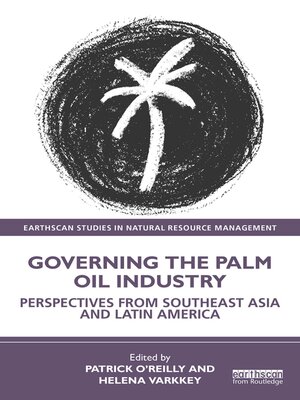Governing the Palm Oil Industry
ebook ∣ Perspectives from Southeast Asia and Latin America · Earthscan Studies in Natural Resource Management
By Patrick O'Reilly

Sign up to save your library
With an OverDrive account, you can save your favorite libraries for at-a-glance information about availability. Find out more about OverDrive accounts.
Find this title in Libby, the library reading app by OverDrive.



Search for a digital library with this title
Title found at these libraries:
| Library Name | Distance |
|---|---|
| Loading... |
This book examines how different countries across Southeast Asia and Latin America respond to the emergence and expansion of the lucrative, yet controversial palm oil industry, paying attention to how national policy and governance regimes are shaping this global industry.
With its historic roots in Southeast Asia, oil palm cultivation continues to expand beyond its historical centres. In Latin America, many countries are now developing their own policies to promote and govern oil palm cultivation. This book provides a unique examination of how different countries strive to strike a balance between developmental and environmental concerns, through case studies on Indonesia, Malaysia, the Philippines, Thailand, Colombia, Brazil, Ecuador, Honduras, and Mexico, and an outlook for the industry's prospects in Africa. This book applies an assemblage approach to draw out lessons on the global challenges posed by the industry and how differing national governance regimes and communities might respond to them. Rather than a single global industry, the book unveils a complex arrangement of national and even local palm oil assemblages, indicating that there is more than one way to do palm oil. In doing so, the book contributes to a better understanding of the drivers and processes that shape the governance of the industry, both in different nations and globally.
This book will be of great interest to students and scholars of the palm oil industry, as well as those interested in natural resource governance, sustainable agriculture, conservation, environmental justice, and environmental and development policy more broadly.







